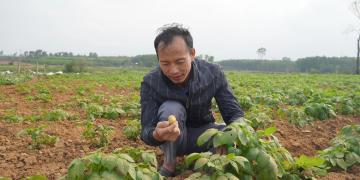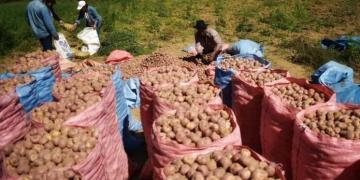Peru: Frost devastates crops in Melgar and threatens food security
Farmers in Melgar face crop losses due to frost, request urgent help to mitigate damage and protect agricultural production in the region

The recent frosts in Melgar province have caused massive losses in potato crops and other crops, putting the local economy and food security in the region at risk. Farmers, like Gutiérrez, from the Umachiri district, report that their crops have been completely destroyed. The situation is critical and the population is waiting for urgent measures to avoid a crisis.
The affected producers have requested support from the Ministry of Agriculture and other entities. They need fertilizers, medicines and the activation of agricultural insurance to try to save what remains of their crops, which include oats and other basic products. In addition, they are asking for the delivery of foliar bonuses to mitigate economic losses.
So far, the authorities have not targeted the worst-affected areas or provided any aid. Farmers say that, despite promises of support, they have not received any assistance. This lack of action has generated uncertainty and despair among producers, who are facing an increasingly difficult situation.
The forecast of more frosts in the coming days aggravates the situation. Farmers fear that if this weather continues, losses will be irreversible and agricultural production will be devastated. The urgency of immediate intervention is key to avoiding a major disaster in the region.
The problem is not limited to Melgar. Farmers in other provinces of Puno, such as Ayaviri, Orurillo and Santa Rosa, are also facing the effects of the frost. This highlights the need for a coordinated regional response to mitigate the impacts of the climate phenomenon throughout the area.
Finally, producers are calling on the authorities to act quickly and effectively. The situation requires not only immediate aid, but also long-term strategies to strengthen agriculture in the face of future extreme weather events. Food security and the economy of the region depend on it.
Fuente: pachamamaradio.org




